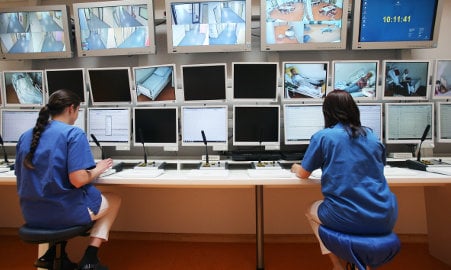According to a bi-annual study of skilled worker shortages released on Tuesday, Germany is currently lacking employees in 19 sectors. These include both jobs requiring university degrees and those which do not need an academic qualification.
The report totalled the number of days a position remained vacant for beyond the expected period of hire.
It focused on two fields currently lacking skilled workers: technical occupations, which include positions for software developers and mechanical engineers; and the healthcare sector, which is experiencing a need for geriatric care specialists, doctors and therapists.
"Employers have a very difficult time finding suitable employees in these professions" said the agency's chairman Frank-Jürgen Weise.
Calling all technical workers
Statistics cite a shortage of workers in technical sectors, ranging from employees at the expert level to non-academically trained tradesmen.
The agency's June report of top job vacancies by industry indicated a particular need for workers in metal construction, which had the second highest number of available positions, falling just behind the retail industry.
Approximately 32,400 job vacancies in metal processing and construction were reported to the Employment Agency, a 15.1 percent increase from the previous year.
Germany is also in need of workers in mechanical, energy and electronics occupations. For this group, 30,600 positions were reported in June, up just under one percent from last year.
Where are the vacancies?
Experts in mechatronics, automation and electrical engineering are in particular demand in the regions of Bavaria, Baden-Württemberg, Bremen and Lower Saxony where "vacancy time in these positions is considerably higher than the national average", the report stated.
The need for specialists and non-academically trained workers in these fields remains high in the west of the country.
Those aiming for jobs in Germany's start-up hot spot of Berlin may be interested to learn that the region is currently experience a deficiency in the IT sector in the areas of systems analysis and sales.
Health shortages
The study also cites a need for professionals in healthcare and reported the highest number of vacancies, 28,800, for those in the field of medical health. The category includes doctors, nurses and therapists who now have 6.1 percent more jobs available to them than last year.
Non-medical health professionals, including dental technicians, and specialist orthopaedic and rehabilitation equipment technologists are also in demand – 24,600 jobs are currently available in this area.
New to the growing list of professions in demand are geriatric healthcare specialists, of which there is a shortage in all German states. The situation has "changed very little over the past year", the agency said.
It identified a need for specialist positions in the areas of geriatric rehabilitation, palliative care and oncology.
Jobseekers outside of the health and technical sectors also have increased opportunity to land positions.
According to the study of June vacancies, retail positions comprise the highest number of vacancies at 34,700.
The tourism industry also has room for over 23,400 additional employees.
SEE ALSO: The ten best expat jobs in Germany




 Please whitelist us to continue reading.
Please whitelist us to continue reading.
Member comments